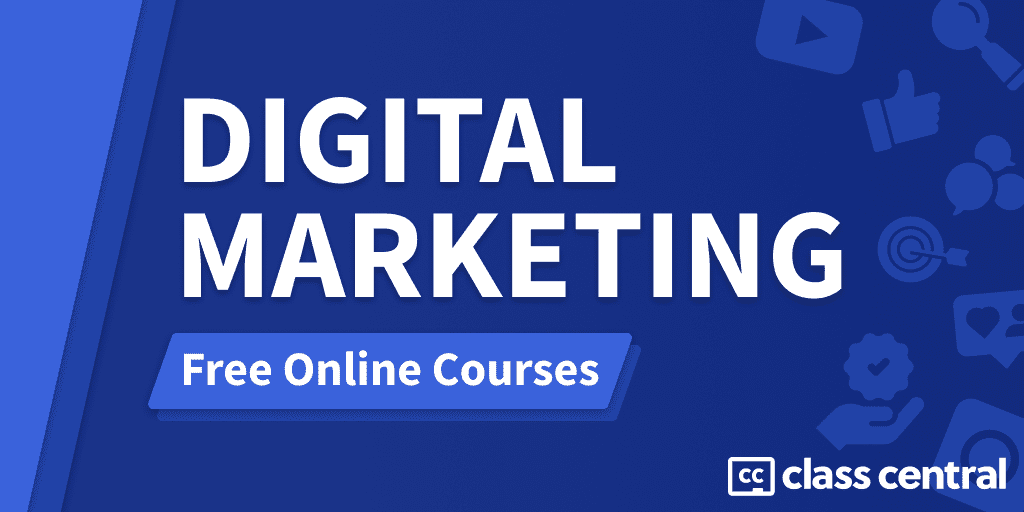A digital course is an online educational program completed on a digital platform. It offers flexibility and convenience for learners seeking to acquire knowledge or skills remotely.
With the rise of e-learning, digital courses have become increasingly popular for individuals of all ages and backgrounds looking to expand their expertise or pursue personal development goals. In today’s fast-paced world, the demand for accessible and self-paced learning options has surged, making digital courses a valuable resource for individuals seeking to enhance their knowledge in various subjects.
Whether it’s mastering a new skill, exploring a hobby, or advancing in a professional field, digital courses offer a convenient and efficient way to learn from anywhere with an internet connection. This blog post will delve deeper into the concept of digital courses, their benefits, and how they are revolutionizing the education landscape.
The Essence Of Digital Courses
E-learning has seen tremendous growth in recent years, with more people opting for digital courses.
Digital courses are online educational programs that allow individuals to learn at their own pace.
These courses cover a wide range of topics and are accessible from anywhere with an internet connection.
Decoding Digital Course Creation
Decoding Digital Course Creation involves understanding the process of creating a digital course. A Digital Course refers to an online learning program delivered through digital platforms. It involves planning, recording, and organizing lesson materials for online education.
Choosing A Compelling Topic
In the world of digital course creation, the first step is to select a compelling topic that resonates with your target audience. The topic should address a specific pain point or offer a solution that people are actively seeking. By choosing a topic that captures the interest of your audience, you lay the foundation for a successful digital course.
Designing Course Structure
When designing a digital course, the structure plays a crucial role in delivering a seamless learning experience. It involves organizing the course content in a logical and easy-to-follow manner. The course structure should be designed to ensure that each module or lesson flows naturally from one to the next, providing a cohesive learning journey for the students.
Production Essentials
Digital courses are online educational programs delivered through digital platforms. They cover a range of topics and can be created on various subjects. Production essentials include planning, recording, and structuring course content effectively for online learning.
Crafting Engaging Content
In order to create a successful digital course, it is essential to craft engaging content that resonates with your audience. This involves understanding their needs, pain points, and learning preferences to tailor your content accordingly. By creating valuable and relevant material, you can capture and maintain the interest of your students throughout the course.
Video Production Tips
Video content plays a crucial role in digital courses, providing an engaging and interactive learning experience for students. When producing videos, it’s important to prioritize high-quality visuals and audio, as well as clear and concise delivery of the course material. Utilizing appropriate lighting, sound equipment, and video editing tools or a free online video editor can significantly enhance the overall production quality.
Leveraging Technology
When it comes to creating a digital course, leveraging technology is crucial for delivering an immersive and interactive learning experience. By utilizing the right tools and platforms, course creators can effectively engage their audience and provide valuable educational content.
Selecting The Right Platform
Choosing the appropriate platform is essential for hosting and delivering a digital course. It’s important to consider factors such as user interface, customization options, and integration capabilities. Platforms like Teachable, Kajabi, and Thinkific offer intuitive interfaces and robust features, allowing creators to design and manage their courses effectively.
Integrating Interactive Elements
Integrating interactive elements such as quizzes, assignments, and discussion forums enhances the overall learning experience. These elements promote active engagement and knowledge retention among students. Additionally, incorporating multimedia content like videos, infographics, and interactive presentations can make the learning process more dynamic and effective.
Marketing Your Digital Course
When it comes to marketing your digital course, it’s crucial to define your target audience and implement effective promotional strategies. This will help you reach the right people and maximize the success of your course. Let’s explore these key aspects of marketing your digital course in detail.
Defining Your Target Audience
Before promoting your digital course, it’s essential to clearly define your target audience. Understanding who your course is designed for will enable you to tailor your marketing efforts to reach those individuals effectively.
Effective Promotional Strategies
Implementing effective promotional strategies is vital for the success of your digital course. This may involve leveraging social media platforms, email marketing, content marketing, influencer partnerships, and paid advertising to reach and engage your target audience. By utilizing a combination of these strategies, you can maximize the visibility and impact of your course.
Monetization And Pricing
When it comes to creating and selling a digital course, one of the most crucial aspects to consider is the monetization and pricing strategy. This is where you determine how to generate revenue from your course and the pricing models to adopt.
Setting Financial Goals
Before diving into the pricing models, it’s essential to establish clear financial goals for your digital course. Determine the amount of revenue you aim to generate from the course and the timeframe for achieving these goals. Whether it’s to earn a certain monthly income or to reach a specific revenue target within a year, having clear financial objectives will guide your pricing decisions.
Pricing Models Analyzed
When it comes to pricing your digital course, there are various models to consider, each with its own advantages and considerations. Some of the common pricing models include:
- One-time payment: Customers pay a single fee to access the entire course.
- Subscription: Customers pay a recurring fee for ongoing access to the course content and updates.
- Tiered pricing: Offering different pricing tiers with varying levels of access and additional resources.
- Freemium model: Providing a basic version of the course for free and offering premium upgrades for a fee.
Each pricing model has its own implications on revenue generation, customer acquisition, and long-term profitability. Analyzing the pros and cons of each model is crucial in determining the most suitable approach for monetizing your digital course.

Credit: www.classcentral.com
Frequently Asked Questions
How To Create A Digital Course?
To create a digital course, you must choose a topic and conduct customer research. Then, select the format of your course, test if it has high market demand, and pre-sell it. Outline your course content, set pricing and sales goals, and choose the right course platform.
Creating course materials can take a week or two for a smaller course and at least a month and a half for a bigger one. Digital course materials can include e-books and other interactive resources.
What Is Digital Training?
Digital training utilizes digital technologies to deliver learning and development programs effectively. It enhances education through online platforms.
How Long Does It Take To Create A Digital Course?
Creating a digital course can take a week or two for a smaller course and at least a month and a half for a larger course.
What Are Digital Course Materials?
Digital course materials are online resources like e-books and open educational content used for online learning.
What Is A Digital Course?
A digital course is an online learning program that provides educational content to students via digital platforms.
Conclusion
Creating a digital course involves careful planning, content creation, and strategic marketing. By selecting the right topic, conducting research, and outlining course content effectively, you can launch a successful online learning program. Remember to engage with your audience and adapt to market demands for optimal results.












































Leave a Reply